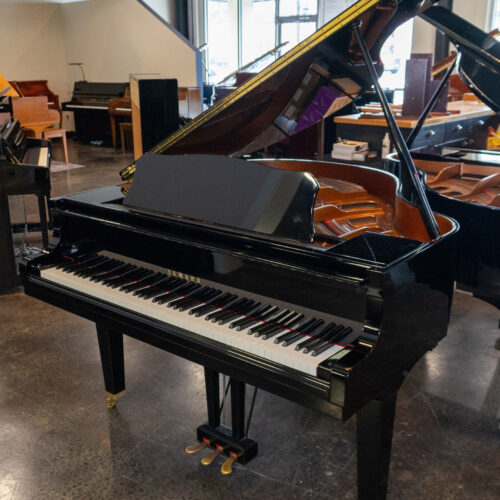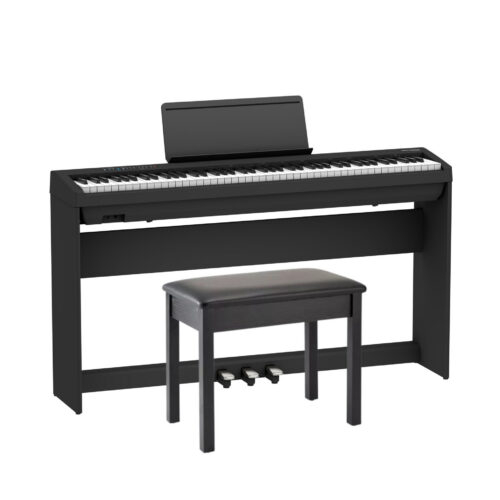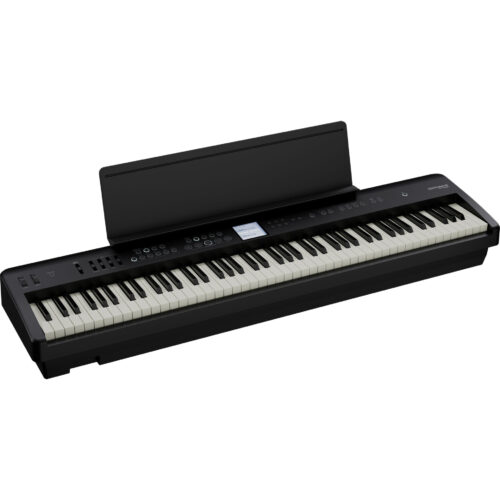Learning how to play the piano as an adult may seem like a daunting skill to develop. There are many aspects to learning the piano, from finding the right piano to learning the right music. Keep reading to find some helpful tips on learning to play the piano as an adult:
Learning the Piano as an Adult
There are some basic strategies that all adult students can benefit from practicing when learning piano.
Find the Right Piano For You
Of course, one of the essential aspects of learning to play the piano is to have a piano. So, if you’re unsure of what type of piano is best for you and your needs, make sure you understand the differences between a digital piano, a keyboard, and an acoustic piano. 💡Check out our blog on “What’s the Difference: Digital Piano vs. Keyboard”
Learning Simple Music
Whether you’re learning the piano for the first time or coming back to a childhood skill, there are always first steps to learning the piano. It may seem boring or unimportant, but it is essential to begin by playing more straightforward music. While playing complicated music may sound alluring and more impressive, playing simple songs will help you set the foundation for your piano learning journey. At the beginning of your piano playing journey, try to approach each song you learn as a part of the building blocks to your bigger goal. The best way to learn the piano and anything in life is by approaching it with motivation and progression in mind.
Find the Best Methods For You
Because every person and piano player is so unique and different in their learning styles, there is no “one size fits all” method for learning the piano. Every student learns music differently and draws different conclusions from what they know, even if the content of the lessons is the same. Part of learning music in today’s day in age with technology is that you can pick and choose from an array of different learning tools. A great way to find out what methods fit your learning style the best. So whether you have a piano teacher or are choosing to embark on the journey using the internet, you should be asking many questions about the art of playing the piano.
What to Avoid as an Adult Piano Student
Although there are many strategies and tools piano students can benefit from, there are also some things that adult students should avoid while learning to play the piano.
Using Books Made for Children
Although it may feel nostalgic and easy to play, adult students should avoid any books or lessons made for children. It may be true that it is “easier” to learn and grasp skills as quickly as a child, but adults have more developed fine motor skills and can acquire information faster and quite quickly. A quick online search will get you many options of books, online lessons, videos, and more for adult piano students. The best thing about finding your online classes is that you can fit them into your weekly schedule whenever you have the time.
Being Inconsistent with Your Piano Practice Time
Additionally, being inconsistent with your piano practice time will be harmful to your piano learning journey. If you have a busy schedule, children, work, etc., it can be challenging to put your piano learning at the top of your “to-do” list for the week. However, consistency is key to learning the piano. It does not take two hours a day to become great at the piano, but it does take consistency! A simple schedule, like practicing for 30 minutes a day 4-5 days out of the week, is a perfect example of being consistent. 💡If you’re unsure about what piano level you’re at, check out our recent blog on “What Level of Piano Player Am I?”
Conclusion
So, are you ready to begin your piano-learning journey? We hope you enjoyed reading about learning to play the piano as an adult! If you’re interested in buying your dream piano, we can help you! Come check us out at Miller Piano Specialists in Franklin, TN! If you have any questions about where to buy a piano for the best price, we are open! Our hours are Monday-Saturday from 10 am to 6 pm. We are happy to help you in person again, using all the guidelines we have been provided. We are here for you.












